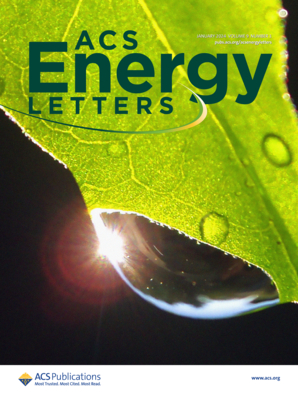在定义明确的配位笼中物理分离单个蛋白质分子以增强其稳定性
IF 19.3
1区 材料科学
Q1 CHEMISTRY, PHYSICAL
引用次数: 0
摘要
与块状溶液相比,将单个蛋白质封装在一个密闭空间内可产生不同的特性,但控制封装蛋白质的数量及其环境仍具有挑战性。本研究展示了在自组装配位笼定义明确、可调的空腔内封装单个蛋白质,从而提高蛋白质的稳定性。在尺寸可调配位笼的均匀空腔内,成功地封装了 15 种不同尺寸(直径 3-6 纳米)和性质(如等电点和疏水性)的蛋白质。各种分析技术证实,这些蛋白质在变性条件下(如暴露于有机溶剂、热和缓冲液中)仍能保持其二级结构和酶活性。这些发现表明,这种配位笼有可能作为合成宿主,在其可定制的空腔内精确控制蛋白质的功能。本文章由计算机程序翻译,如有差异,请以英文原文为准。
Physical Isolation of Single Protein Molecules within Well-Defined Coordination Cages to Enhance Their Stability
Encapsulation of a single protein within a confined space can lead to distinct properties compared to bulk solutions, but controlling the number of encapsulated proteins and their environment remains challenging. This study demonstrates the encapsulation of single proteins within well-defined, tunable cavities of self-assembled coordination cages, thereby enhancing protein stability. Within uniform cavities of size-tunable coordination cages, 15 different proteins of varying sizes (3-6 nm in diameter) and properties (e.g., isoelectric points and hydrophobicity) were successfully confined. Various analytical techniques confirmed that the proteins maintained their secondary structures and enzymatic activities under denaturing conditions such as exposure to organic solvents, heat, and buffers. These findings suggest that such coordination cages have the potential to serve as synthetic hosts for precisely controlling protein functions within their customizable cavities.
求助全文
通过发布文献求助,成功后即可免费获取论文全文。
去求助
来源期刊

ACS Energy Letters
Energy-Renewable Energy, Sustainability and the Environment
CiteScore
31.20
自引率
5.00%
发文量
469
审稿时长
1 months
期刊介绍:
ACS Energy Letters is a monthly journal that publishes papers reporting new scientific advances in energy research. The journal focuses on topics that are of interest to scientists working in the fundamental and applied sciences. Rapid publication is a central criterion for acceptance, and the journal is known for its quick publication times, with an average of 4-6 weeks from submission to web publication in As Soon As Publishable format.
ACS Energy Letters is ranked as the number one journal in the Web of Science Electrochemistry category. It also ranks within the top 10 journals for Physical Chemistry, Energy & Fuels, and Nanoscience & Nanotechnology.
The journal offers several types of articles, including Letters, Energy Express, Perspectives, Reviews, Editorials, Viewpoints and Energy Focus. Additionally, authors have the option to submit videos that summarize or support the information presented in a Perspective or Review article, which can be highlighted on the journal's website. ACS Energy Letters is abstracted and indexed in Chemical Abstracts Service/SciFinder, EBSCO-summon, PubMed, Web of Science, Scopus and Portico.
 求助内容:
求助内容: 应助结果提醒方式:
应助结果提醒方式:


